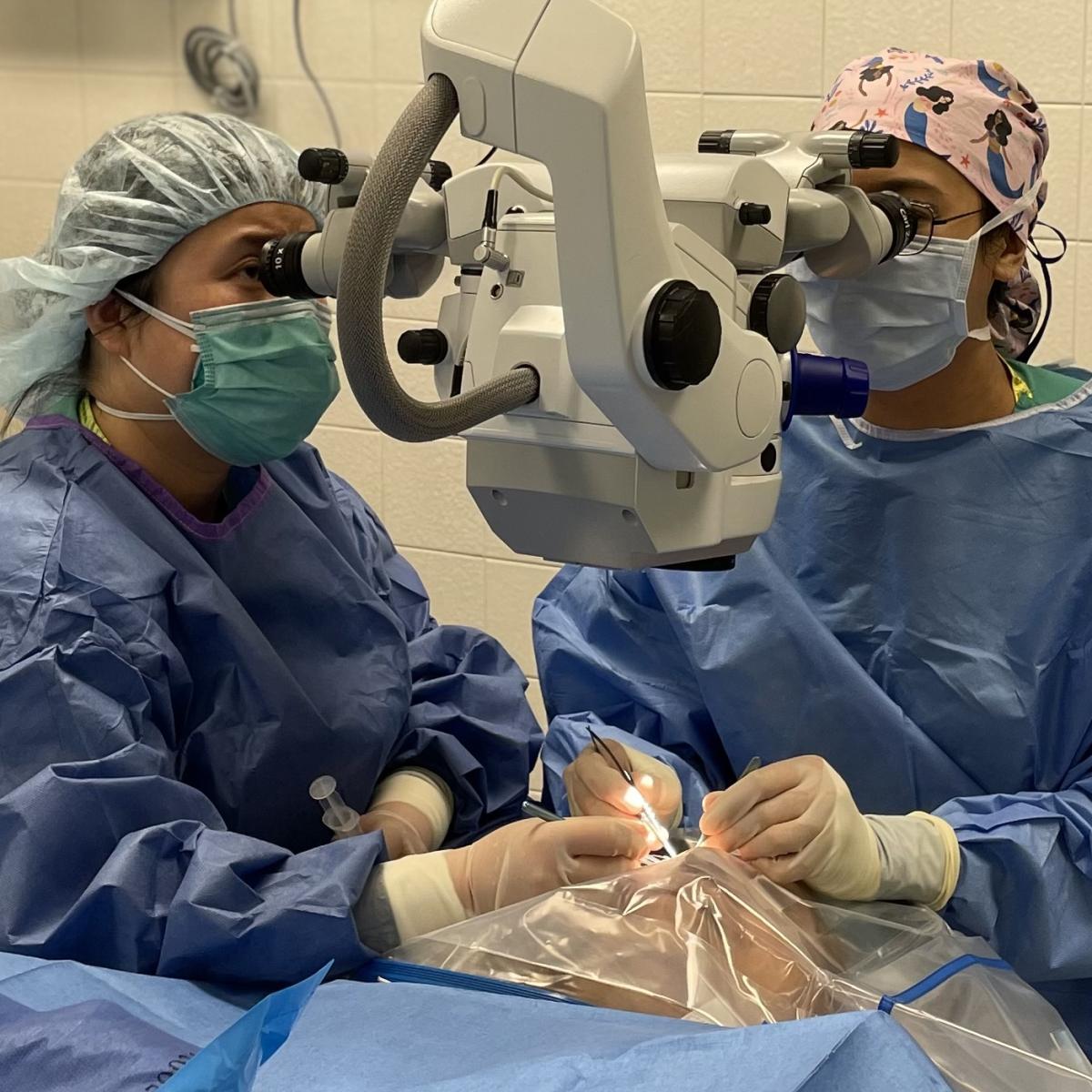 The Tulane Ophthalmology Residency supports a fully accredited program with five residents in each class of its three-year program.
The Tulane Ophthalmology Residency supports a fully accredited program with five residents in each class of its three-year program.
The objectives of the ophthalmology residency are to enable residents to increase general medical and surgical knowledge, develop strong values and uphold the highest standards for practice, and develop specific understanding and skill in the diagnosis and management of eye disease.
These goals are accomplished through direct patient care experience, didactic teaching, and tutorial instruction. As they improve in skill and knowledge, residents undertake gradually increasing responsibility for patient care under the supervision of our faculty.
Tulane's four-year, ophthalmology residency training program offers rotations at Tulane Medical Center and other Tulane-affiliated hospitals, including the University Medical Center and the Veterans Affairs Hospitals of New Orleans, West Jefferson Medical Center, East Jefferson Medical Center, and Biloxi.
Graduates of the Tulane Ophthalmology residency program are recommended to the American Board of Ophthalmology for specialty certification.
Our direct patient care experiences help residents to:
- Hone communication skills with patients
- Learn ophthalmologic examination skills
- Formulate differential diagnoses in eye diseases
- Manage clinical problems of increasing complexity
- Develop and exercise clinical and ethical decision-making abilities
- Work efficiently as a member of the healthcare team
Our procedures and surgical experiences allow residents to:
- Develop skills for minor surgical procedures such as chalazion and tarsorrhaphy
- Learn cataract and anterior segment (glaucoma and others) surgical techniques
- Learn surgical techniques for treating strabismus
- Learn anterior and posterior segment laser surgery
- Gain exposure to all areas of subspecialty surgery
Our lecture series, readings, interactive conferences, and review sessions help residents to:
- Build basic science and clinical knowledge
- Gain exposure to research and consider projects of their own
- Develop skills for teaching, medical writing, and publishing
- Coordinate studies to prepare for American Board of Ophthalmology certification
